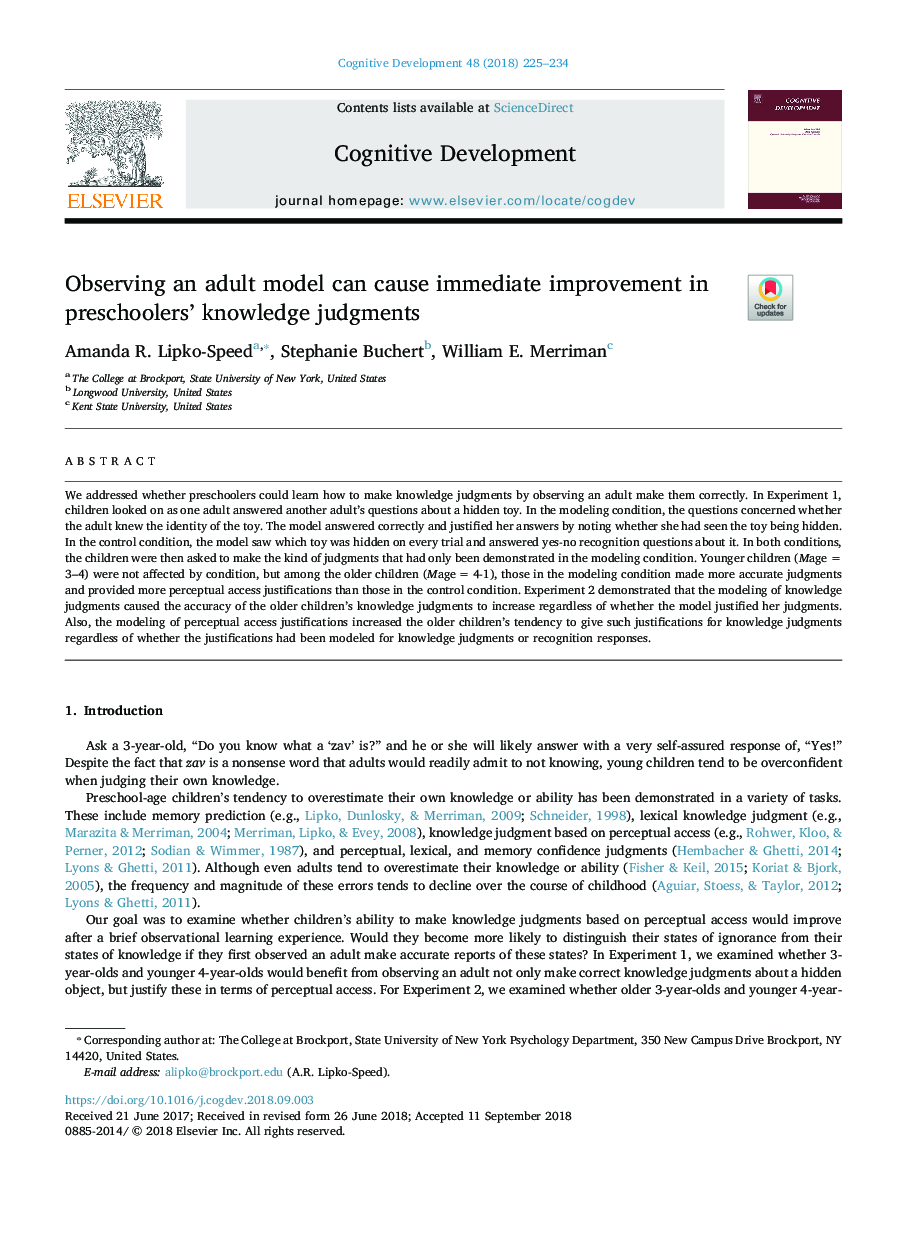| Article ID | Journal | Published Year | Pages | File Type |
|---|---|---|---|---|
| 11004503 | Cognitive Development | 2018 | 10 Pages |
Abstract
We addressed whether preschoolers could learn how to make knowledge judgments by observing an adult make them correctly. In Experiment 1, children looked on as one adult answered another adult's questions about a hidden toy. In the modeling condition, the questions concerned whether the adult knew the identity of the toy. The model answered correctly and justified her answers by noting whether she had seen the toy being hidden. In the control condition, the model saw which toy was hidden on every trial and answered yes-no recognition questions about it. In both conditions, the children were then asked to make the kind of judgments that had only been demonstrated in the modeling condition. Younger children (Mage = 3-4) were not affected by condition, but among the older children (Mageâ=â4-1), those in the modeling condition made more accurate judgments and provided more perceptual access justifications than those in the control condition. Experiment 2 demonstrated that the modeling of knowledge judgments caused the accuracy of the older children's knowledge judgments to increase regardless of whether the model justified her judgments. Also, the modeling of perceptual access justifications increased the older children's tendency to give such justifications for knowledge judgments regardless of whether the justifications had been modeled for knowledge judgments or recognition responses.
Related Topics
Social Sciences and Humanities
Psychology
Developmental and Educational Psychology
Authors
Amanda R. Lipko-Speed, Stephanie Buchert, William E. Merriman,
